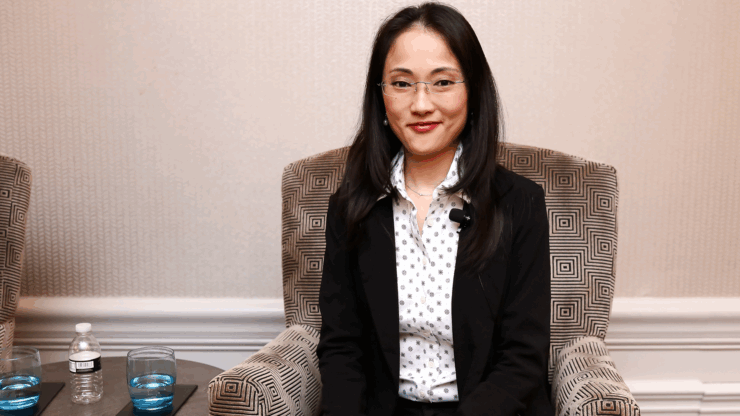
Ask The Expert: Interview with the Alzheimer’s Drug Discovery Foundation (ADDF)

Presented in Partnership with the Alzheimer’s Drug Discovery Foundation
June is Alzheimer’s and Brain Awareness Month, a time for us to heighten awareness for various types of dementia and show support towards the individuals who are living with it. Alzheimer’s is currently ranked as the seventh leading cause of death in the United States and is the most common dementia among older adults.
Join us this month as we ask an expert: Dr. Yuko Hara, Director, of ADDF’s Aging and Alzheimer’s Prevention in a one-on-one discussion about her journey as a member of the ADDF and answers questions on this degenerative neurologic disease and current research for developing new treatments to reduce the progression of Alzheimer’s and even cure other-related dementias.
LifeWorx: Tell us what inspired you to pursue a career at the Alzheimer’s Drug Discovery Foundation (ADDF), specifically your work on the ADDF’s Aging and Alzheimer’s Prevention team. What aspect of your role do you enjoy the most?
Dr. Hara: Prior to joining the ADDF, I was an Assistant Professor at the Icahn School of Medicine at Mount Sinai, NY, where I studied cognitive decline related to menopause and aging. I was particularly interested in determining the biological characteristics tied to successful cognitive aging. In other words, what can we do to maintain brain health into old age?
LifeWorx: Can you speak to Cognitive Vitality’s impact, whether on other research organizations, physicians, patients, etc. within the Alzheimer’s community?
Dr. Hara: The Cognitive Vitality website (www.CognitiveVitality.org) is managed by the ADDF’s Aging & Alzheimer’s Prevention team, whose mission is to evaluate, communicate, and accelerate the scientific evidence for possible strategies to prevent brain aging, Alzheimer’s disease, and related dementias. The website reaches a broad audience, with over one million pageviews in 2022.
Cognitive Vitality has a wide range of resources. Our Cognitive Vitality Ratings are written by the ADDF’s neuroscientists for a general audience. They provide unbiased scientific evidence on the safety and potential brain health benefit of select food, drinks, vitamins, supplements, and commonly prescribed drugs. They are popular with people interested in maintaining brain health, but are also helpful resources for physicians, patients, and caregivers. Other popular contents on Cognitive Vitality include first steps to protect your cognitive vitality and blog posts on news related to dementia risk and prevention.
We also have a resource called Cognitive Vitality Reports, which currently contains over 300 in-depth scientific reports of drugs, drugs in development, supplements, nutraceuticals, food/drink, non-pharmacologic interventions, and risk factors related to brain health. These Reports are publicly available for researchers and clinicians interested in the development of drugs for Alzheimer’s and related dementias. Cognitive Vitality Reports can be used in tandem with Cognitive Vitality Ratings to facilitate conversations between patients and their healthcare providers about the drugs and supplements they are taking.
I was inspired to pursue a career at the ADDF because the Aging & Alzheimer’s Prevention team is focused on identifying and analyzing the potentials of different drugs, drugs-in-development, supplements, natural products, and lifestyle interventions as they relate to cognitive function and age-related diseases. I enjoy learning about these interventions that are potentially promising for preventing dementia and maintaining brain health.
LifeWorx: Why is prevention so important?
Dr. Hara: Preventing the onset of Alzheimer’s dementia by just five years may result in a 40% lower prevalence of the disease. Therefore, greater focus on prevention research is guaranteed to have a large impact on society. Prevention is important because there are concrete steps anyone can take to reduce dementia risk or delay its onset. In 2020, the Lancet Commission on Dementia Prevention, Intervention and Care reported that up to 40% of dementia cases could be prevented by fully addressing 12 lifestyle factors throughout the life course:
- EARLY LIFE: Not completing secondary education
- MIDLIFE: Hearing loss, traumatic brain injury, hypertension, obesity, and excessive alcohol consumption
- LATE LIFE: Smoking, depression, physical inactivity, air pollution, social isolation, and diabetes
LifeWorx: In your opinion, what is the most exciting prevention research currently being funded by the ADDF?
Dr. Hara: A few years ago, there was a landmark clinical trial named Finnish Geriatric Intervention Study to Prevent Cognitive Impairment and Disability (FINGER), led by Miia Kivipelto, MD, PhD, a Professor in Clinical Geriatrics at Karolinska Institutet in Sweden and also an ADDF Board Member. This study reported that a group of lifestyle changes improved cognitive function and memory in older people with APOE4, a genetic risk factor for Alzheimer’s disease. The ADDF is currently supporting Dr Kivipelto’s FINGER 2.0 clinical trial, where the same lifestyle interventions are combined with an approved diabetes drug, metformin, to evaluate if the combination can further prevent cognitive decline.
LifeWorx: What advice or resources can you share for anyone who is worried about developing Alzheimer’s?
Dr. Hara: Anyone interested in maintaining their brain health can access a wealth of resources on Cognitive Vitality. It is never too early to start taking steps to protect your brain.
Stay tuned for our article next month as part of our Ask The Expert series.
Find your peace-of-mind.
Explore LifeWorx’ in-home elder care services.

















